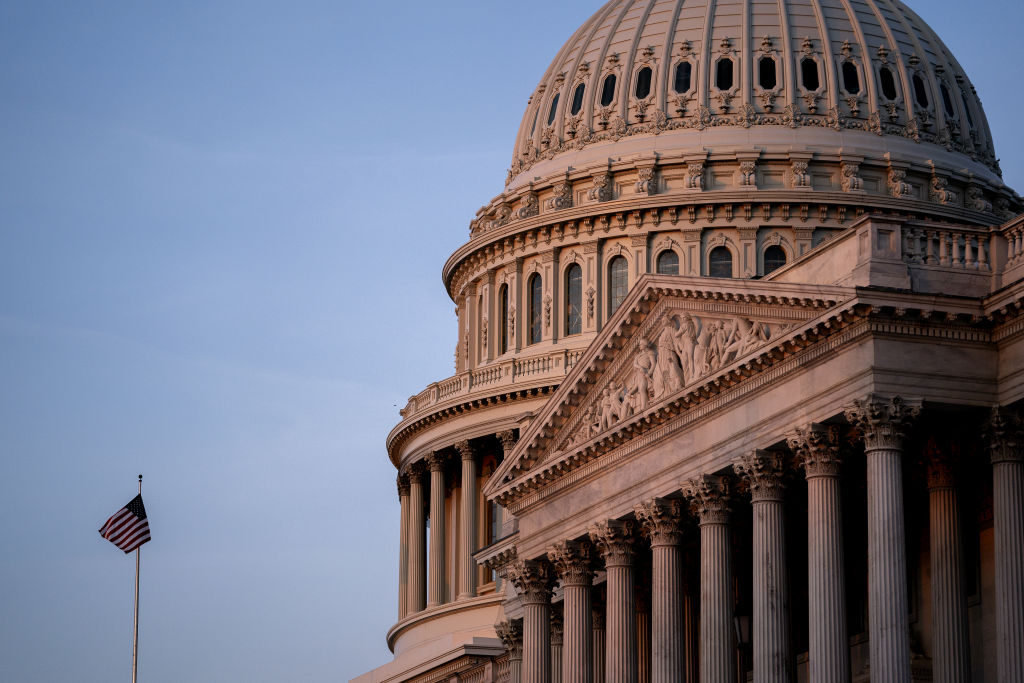The United States Senate today approved the CHIPS Act, with a 64-33 vote, following yesterday’s cloture passage. The bill, which includes $52 billion to subsidize domestic semiconductor production, now moves onto the House for debate. The current bill bears more than a passing resemblance to the United States Innovation and Competition Act, which also passed through the Senate before petering out in the lower congressional chamber.
The bill is a reaction to the on-going global chip shortage, itself a result of a confluence of international crises, including the pandemic, tense U.S.-China relations, extreme weather phenomena and the on-going Russia-Ukraine War. Those factors, combined with the manufacturing’s concentration in Asia (specifically Taiwan), have led to shortages in the chips that power everything from phones to cars.
Earlier today, I was joined by industry and labor leaders to discuss the importance of passing the CHIPS for America Act to supercharge our efforts to make semiconductors right here in America.
I’m ready to sign this strong, bipartisan bill into law. pic.twitter.com/wNoSaWqcus
— President Biden (@POTUS) July 26, 2022
President Joe Biden has been a staunch supporter of the bill, virtually meeting with several CEOs earlier this week due to his COVID-19 diagnosis. Earlier this morning, the President tweeted, “Semiconductor chips are the building blocks of the modern economy – they power our smartphones and cars. And for years, manufacturing was sent overseas. For the sake of American jobs and our economy, we must make these at home. The CHIPS for America Act will get that done.”
“We are moving forward on the Senate CHIPS bill,” Senate Majority Leader Chuck Schumer said in a statement tied to the vote. “It’s going to take aim at the national semiconductor chip shortage, lower costs for American consumers, and boost scientific innovation and jobs.”
There's a reason China is watching the CHIPS for America Act so closely – it is trying to get ahead of us in making these chips and doesn’t want to get beat.
America invented the semiconductor. It’s time to bring manufacturing – and the jobs that come with it – home.
— President Biden (@POTUS) July 26, 2022
In a recent interview, Commerce Secretary Gina Raimondo suggested the results of not passing the bill could be dire. “If you allow yourself to think about a scenario where the United States no longer had access to the chips currently being made in Taiwan, it’s a scary scenario,” she told interviewers. “It’s a deep and immediate recession. It’s an inability to protect ourselves by making military equipment. We need to make this in America. We need a manufacturing base that produces these chips, at least enough of these chips, here on our shores because otherwise we’ll just be too dependent on other countries.”
U.S. Labor Secretary Marty Walsh also championed the bill in a recent interview with TechCrunch, noting it “will allow us to bring more manufacturing jobs to America. These are going to be factories built from scratch.”
Republican Congressman Michael McCaul cited security concerns connected to tense U.S.-China relations as the key to his support. “It’s been a long process, but this national security legislation will ensure we manufacture semiconductors — the brains behind everything from cell phones to fighter jets — right here in America. NOT China.”
WATCH LIVE: The Chips and Science Act has passed in the Senate! https://t.co/Uq1VNEilDZ
— Senate Democrats (@SenateDems) July 27, 2022
Along with bipartisan support, the bill has also received criticism from both sides of the aisle. In a recent statement, Bernie Sanders accused the bill of promoting “crony capitalism.” The Vermont Senator noted,
The five biggest semi-conductor companies that will likely receive the lion’s share of this taxpayer handout, Intel, Texas Instruments, Micron Technology, Global Foundries and Samsung, made $70 billion in profits last year. Does it sound like these companies really need corporate welfare?
Republican Utah Senator, Mike Lee, echoed the sentiment, noting, “The poorer you are, the more you suffer. Even people well-entrenched in the middle class get gouged considerably. Why we would want to take money away from them and give it to the wealthy is beyond my ability to fathom.”
Intel CEO Pat Gelsinger pushed back on the notion that his industry was “looking for handouts” at the recent Aspen Ideas Festival, adding that a delay would push chipmakers to move to other non-U.S. locales, such as Europe. “The rest of the world is moving rapidly despite the inability of Congress to get this finished,” the executive said.
Earlier this week, Intel inked a deal with MediaTek that will diversify the geographical production of the Taiwanese company’s chips. That news comes after Intel delayed the groundbreaking of its $20 billion chip plant outside of Columbus, Ohio in what some have called a “stunt” designed to pressure Congress into passing the CHIPS Act.
The President, newly recovered from COVID, watched the passage from the White House, before calling on the House to pass the legislation “ASAP.”
Semiconductor Industry Association President and CEO John Neuffer echoed the sentiment in a statement provided to TechCrunch, noting,
Senate passage of the CHIPS Act marks decisive progress toward strengthening America’s economy, national security, and leadership in the key technologies of today and tomorrow. We greatly appreciate the bill’s Senate champions for advancing it, commend today’s strong bipartisan vote, and urge the House of Representatives to swiftly follow suit and send the CHIPS Act to President Biden’s desk to be signed into law. The stakes are high, and the time to act is now.































Comment